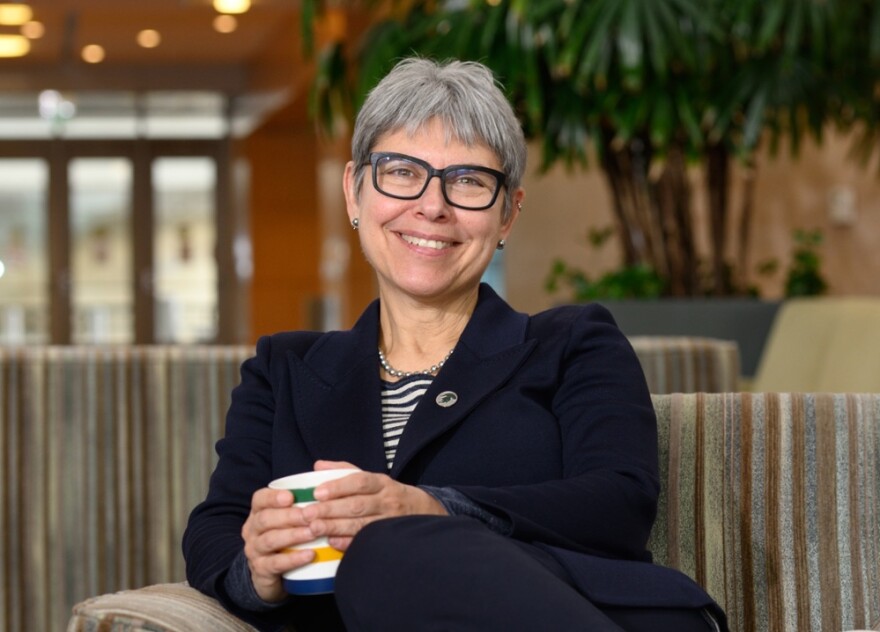Dr. Claudia Finkelstein is Director of Wellness, Resilience and Vulnerable Populations at Michigan State University's renowned College of Human Medicine. May is Mental Health Awareness Month. She talks about our collective mental health as we cautiously emerge from the pandemic.
“Kaiser Family Foundation has done some interesting survey work,” says Finkelstein. “Looking at the rates of anxiety and depression type symptoms in 2019 compared to now, there's been a huge bump. Anxiety and depression symptoms and substance use are all on the rise. Interestingly, the suicide rate has not risen to the extent that people were concerned about.”
In a conversation last May, Dr. Finkelstein told me she would love for everybody to know how completely normal it is to feel completely abnormal right now.
“That's it in a nutshell. It happens to everybody. Sometimes you just can't feel like you have the enthusiasm to face the day. I think all of us go through periods of varying emotions. And it doesn't mean you're crazy if you're feeling anxious or worried or depressed. With everything, there's a range. Feeling symptoms of anxiety does not equal having an anxiety disorder. But having an anxiety disorder doesn't make you abnormal. You are among many. We've all got a little something.”

In that May 2020 conversation, Dr. Finkelstein added that an adage she lives by it that “it’s never all in your head and it's never all in your body. We have done a disservice in splitting our mental health and our physical health because they're intimately related to each other.”
Dr. Finkelstein talks about her five tips to help our emergence into a new normal.
“Do not forget joy, whimsy, and laughter.”
“Don’t be a jerk.”
"Remember what is my business, your business, and universal business, and respond accordingly."
“Find common ground.”
"Keep an eye on yourself and each other. Remember to heed the words of Bill and Ted and be excellent to each other."
She believes there are some good things that have come out of the pandemic.
“Keeping mental health in the public conversation is one of the very positive things. The access to telehealth is another huge bonus. Also just keeping the possibility of some quiet, reflective time. Many of us were so on-the-go every minute of the day that we didn't even have a moment to connect. And the parents of little kids and those with pets have had more time to spend with their loved ones. That is something that we should absolutely keep.”
How do we know when how we're feeling is more than normal ups and downs and we may need to seek professional help? How do we recognize this need in family and friends?
“It's not like an on or off switch. It's kind of a sliding scale. But big changes in sleep or appetite, a lot of bottles showing up in the recycling bin, those kinds of things sort of trigger your spidey sense. If you have a doubt about someone, it's worth checking.”
Dr. Finkelstein refers to our collective mental health as the next pandemic.
“The anxiety and depression and substance use levels that I've described are just cresting. People have been affected economically and financially. There are many milestones that have not been adequately celebrated. Weddings have been postponed. Loved ones have died. Grief takes some time to process. There are few people I know who have not been directly impacted in one way or another. Our collective grief is going to take a while.”
The key to Mental Health Awareness Month for Dr. Finkelstein is the self-reflective piece.
“Try to notice if you feel like you’re doing too much or too little. When is the last time you went outside? When’s the last time you laughed? How are you spending your limited time on Earth? I hope we continue to be more self-aware and keep an eye out for each other.”
MSU Today airs Sunday mornings at 9:00 on 105.1 FM and AM 870 and streams at WKAR.org. Find “MSU Today with Russ White” on Spotify, Apple Podcasts, and wherever you get your shows.

